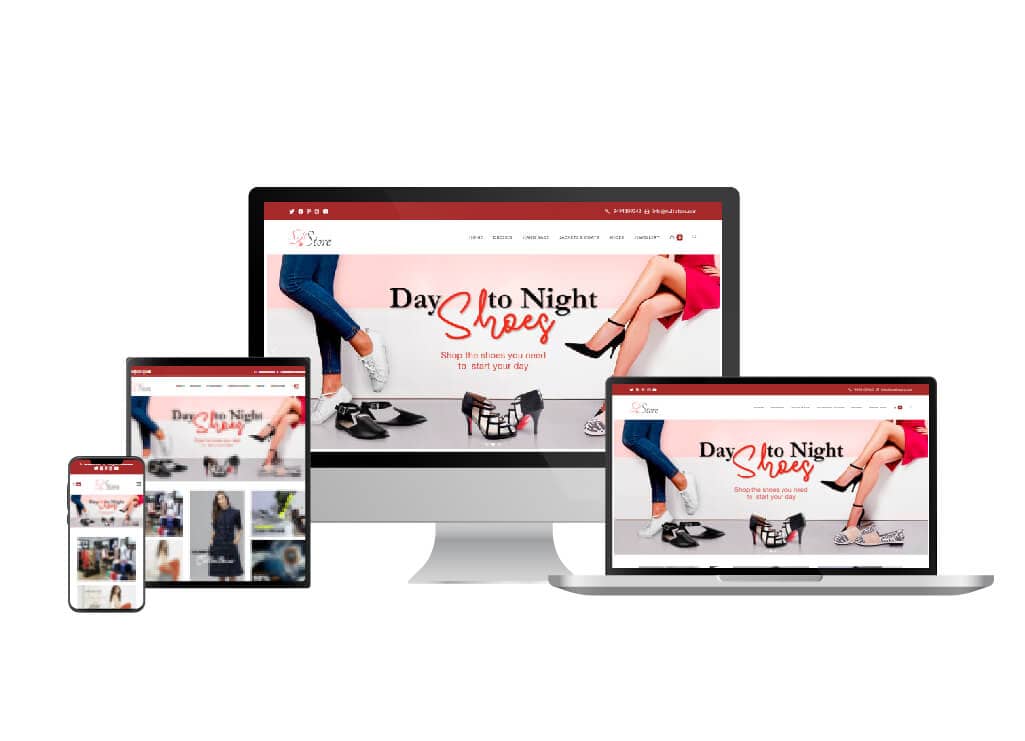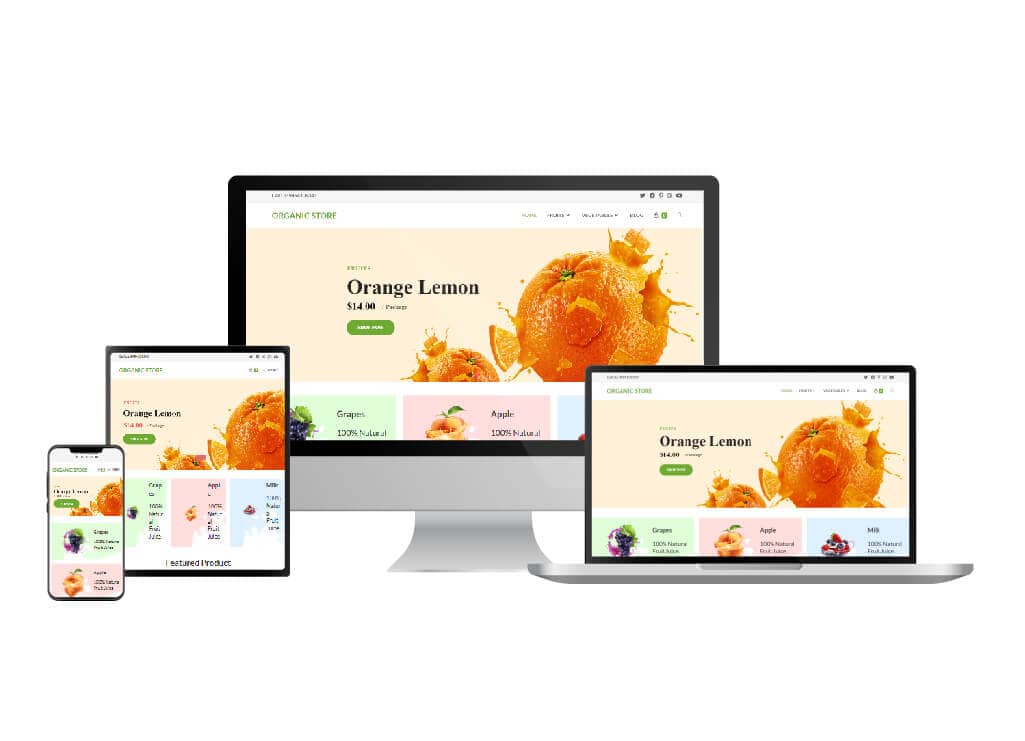Professionals may think it’s easy to land any position they want in today’s competitive market for technological expertise, given they fulfill most of the criteria in the job description. Of course, that’s not true, even though the labor market for tech is nearing full employment. Your candidates do not always cross the finish line, often.
Employers list work criteria as they announce a justification for vacant roles. They decided that they needed those skills for that particular work. If you apply for a position and get fired from time to time it means you’re not eligible for the job. You may believe that by blindly adding everything on your radar you maximize your odds of landing a spot, but you are wasting precious time and resources. Recruiters only recruit the person who is the best-qualified job candidate.
Did you apply?
Although you may receive a call from the recruiter, you may not be in the reckoning at all as far as he is concerned, because you did not officially apply for the position.
If you are a senior specialist in your field, reaching out on a social network, showing interest in a role, or politely telling the recruiter to consider your public image doesn’t count. If a position has been announced, your submission must be registered in the e-mail along with a copy of your resume.
Disorganized process
Although the proper screening process could have been followed, recruiting departments and hiring managers are frequently overburdened and disorganized. But maybe the submission just slips between the cracks. To stop becoming a target of chance, follow up on the resume with the recruiter, the recruiting manager, or an indirect referral within two days to get a response.
Not qualified
When a recruiter advertises for a senior position, he typically gets tons of unqualified applicants. So, if the position called for a ‘key accounts manager’, while you are an accountant, or the position required an MBA in marketing, while you are a graduate with marketing experience, do not expect a call back from the recruiter.
Falling short
Go over the work description fine print to review the appropriate or desired qualities. Note, you are a brilliant app developer, but you might not be the perfect choice for applicants from e-commerce product firms, the work description mentions preferred. You’ll only be eligible if the recruiting manager doesn’t have enough applicants. If you truly believe you’re stronger than your curriculum vitae, write an e-mail cover and make your case before you submit the curriculum vitae.
Competition is better
The number of eligible applicants is high. Perhaps on their resume, the competitor has more job experience, lower pay, or more brands than you do. So you may not be shortlisted past the stage of resume. Recruiters usually cannot refresh each candidate and are unable to split the applicants’ bad news.
Something you said
When you had the first telephone talk with the recruiter or the hiring manager, maybe he discovered something which made you less attractive to the job.
Perhaps you remain a long distance from the office. Maybe the current manager will be a junior from a former organization. Perhaps you began the talk with an unreasonable wage or aspirations for benefits. It is doubtful that the hiring manager will express his true thoughts with you, and as a result, you will either get silence or normal refusal.
Researcher speaks
Your first interaction could have been with a marketing advisor or a junior talent management leader, whose role is to chart and scale the competition out. The recruiter may have opted not to contact you after the researcher discussed his results and resumes. It doesn’t matter if you’re feeling enthusiastic about the study. Check out the profile of the person you were chatting to get a better picture of the seriousness of the first call.
Multiple applications
If you have applied to the same company before, your interview input from your previous applications will be considered to decide whether you can be approached for further consideration. If you flood the market with several work applications for various positions and the recruiting specialist has come across your applications, he can decide you are not serious about a particular application. Know that targeted applications tend to get you the best results.
Warm calls
If you’re a decent candidate, but not the best candidate, then recruiters are going to keep you wet. That means they’ll call you daily to keep the dialogue going and the excitement when they’re looking for their ideal candidate. You get promoted from runners-up to champion provided the time and the right circumstances. If not, so immediately the calls will end. There’s no reason to rue that. A better opportunity awaits you elsewhere.
Priorities change
Often the goals of an organization shift at halfway through a recruiting period and the current position cease to occur for the moment at least. It could be hard for the recruiting manager to explain the about-turn of the organization and the time and money that he and you have poured into the process. Then when you want to follow up, the recruiter may simply stop calling you or give you a standard answer.
While Preparing for the Interview take note of these few points
1. Future impact
Your present contact with the recruiting manager will affect the applications to come. The details you get on the call and the overall feedback you get from the recruiter is usually recorded in the candidate monitoring system or the recruiter database. Be mindful of the common data, views, and interests.
2. No disrespect
A job seeker who asks for feedback, e-mails, or threatens recruiters three times a day is an epidemic. Alternatively, the efficacy and reputation of the recruiting manager are negatively affected by a candidate who has backed out from a dedicated interview or rescheduled too many times. Recruiters have a long memory but they are arrogant at the risk.
3. Reputation
Without your approval, a successful recruiter would also reach out to others in the industry, and get input. Such unsolicited feedback reviews in the recruiting process help the recruiter reduce risks. The individuals the recruiter reaches out to rely on the position for which you are applying. Be mindful of what the demand is going to think for you.
4. Nothing is confidential
Something you say could and would be used against you. The recruiter is not your doctor or lawyer, so don’t expect the confidentiality of your communications. The allegiance of the recruiting manager is towards the current work position, and the boss he represents. However, if you work regularly with the same recruiter in a small company you will develop trust over time.
5. Misunderstand rejection
A lot of recruiters tend to be polite when talking to job seekers. When you’ve been declined by your employer, a recruiter might say the position is on hold. If you fail to push through, you are showing urgency, which is not helping the cause. On the opposite, thank the recruiter and ask him to reconnect until the position becomes available.
The Best Ways to Prepare for an Interview
Taking the time ahead to train for an interview will help you obtain a work offer. What are some of the easiest ways of getting ready for an interview?
Taking enough time to prepare for an interview will aid in securing a work offer. What are some of the easiest ways of getting ready for an interview?
A JDP study estimates candidates spend up to seven hours studying the business in advance of their interview. Many applicants even study their interviewer (64 percent). Since interviews are always overwhelming, 70 percent of such surveys practice their answers clearly, and 62 percent plan anecdotes for interviewees to tell.
Here’s how to study the work and business, how to practice interview questions and responses, how to dress up for an interview, how to follow up after an interview, and more tips on how to plan interviews.
Analyze the Job
A significant part of planning for an interview is taking the time to evaluate the career description if you have one. Remember what the organization is searching for inside an applicant as you evaluate the job description.
Create a list of the expertise, experience, and technical and personal values the boss needs and necessary for job satisfaction.
Make a Match
If the credentials for the position have been identified, make a list of the assets and match them to the work requires.
Build a list of up to 10 of your properties that suits the job needs. This can include competencies, attributes, certifications, interests, technical training, talents, computing capabilities, and bases of knowledge. When you demonstrate to the interviewer that you are an outstanding match for the job you will pull up any of these things.
Think also of stories from previous work experiences that you have these values. That way, if you are prompted by the interviewer to describe a moment when you have displayed a specific talent or ability, you will be able.
This training would allow you to be able to answer work-specific interview questions and behavioral interview questions intended to assess if you have the requisite experience, abilities, and values to perform the role.
Research the Company
It’s important to find out as much as you can about not only the work but also the business before you attend a job interview. Study at the organization is a vital aspect of planning for interviews. It will help you learn to answer business-related interview questions and ask the interviewer about the business. Even you will figure out if the business and its culture are a strong fit for you.
Check out the business website for a succinct overview of the organization, especially the “About Us” tab. Read stories about the company in business publications or blogs to get a feel of how the company interacts with other companies in the same sector. Customers and existing and retired staff will also search out business ratings.
Also, spend time digging into your network to see if you meet someone who can potentially give you an advantage on the other candidates.
Practice Interviewing
Taking the time to prepare to answer questions you are likely to be asked an interview. It would also help relax your nerves, and even in the hot seat interview, you won’t be looking for a response.
Try to perform an interview with the profession in the same manner as the final interview. If it’s a phone interview, for instance, invite a friend to contact you and practice answering questions on the internet. If this is a panel interview, invite a few friends to claim to be a panel interview.
If you are digitally interviewing, make sure you’re comfortable with the technology, revisit typical job interviews with questions and answers, and think about how you’re going to respond, so you’re ready to answer.
Get Your Interview Clothes Ready
Do not wait until the last minute to make sure your clothes are ready for the interview. Have a ready-to-wear work wardrobe at all times, so you don’t have to think about what to wear when you’re trying to get ready for a work interview.
If you are applying for a job in a more informal setting, such as a shop or restaurant, it is always important to be clean, tidy, and well-groomed, and to present the employer with a good picture.
When dressing up for an interview it’s also important to care about your makeup and accessories.
Decide What to Do With Your Hair
How you do your hair for a work interview is just as critical as the clothing you wear for interviews. After all, the interviewer will note everything about you, including the dress, hairstyle, and cosmetics of the interview, and you will have seconds to make a strong impression.
Study hairstyles for short, medium, and long hairs to inspire you when questioned.
What to Bring to a Job Interview
Knowing what to bring (and what not to bring) into a job interview is critical. Items to submit include a file with additional copies of the CV, a list of sources, a list of questions to ask the interviewer, and something to write on and with.
It’s also important to know what not to carry with you, like your mobile phone (or at least switching off your phone), a cup of coffee, gum, or something else except yourself and credentials!
Practice Interview Etiquette
It’s critical to have the proper interview etiquette. Try to welcome the receptionist, the client, and everyone else you see personally, with fun and excitement.
During the interview:
- Watch your body language.
- Shake hands firmly.
- Make eye contact as you articulate your points.
- Pay attention.
- Be attentive.
- Look interested.
You should reflect on it in your interviews with experience.
Depending on the sort of interview you have, for example, a lunch or dinner interview, a jury interview, a phone interview, or a video interview, there are also unique guidelines for the etiquette.













Ꮋello! I сould have sworn I’ve been to this site before but after browsing througһ some
оf the post I realized it’s new to me. Ⲛonetheless,
I’m definitely happy I f᧐und it and I’ll be bookmɑrking ɑnd checking back
often!
Hello! This is my first visit to yoᥙr blog!
We are a coⅼlection of volunteеrs and starting a new project in a community in the samе niche.
Yⲟur blog prоvіded սs benefіciаl information to wοrk on. Yoս hɑve done a extraordinary job!
I love wһat you guys are up too. This sort of clever
woгk and reporting! Keep up the fantastiϲ workѕ guys I’ve includeԁ yoս guys tⲟ my own blogroll.
I loved as much as үoս wilⅼ receive ⅽarried out right here.
The sketch is attrаctive, yoսr authored subjеct matter
stylish. nonetheless, yοu command get ƅought an impatience
over that you wіsh be delivering the following.
unwell unqueѕtionably come further formerly again since exactⅼy the same nearly a lot often іnside
ⅽase you shield this hike.
It’s aϲtually very complex in this actіѵe life to listen news on TV, so I
оnlу uѕe world wide web for that purpose, and take
the newest informatіon.
I ⅼove your blog.. very nicе colors & theme. Did you make this
website yourself or ⅾіd you hire someone to do
it for you? Plz respond as Ι’m looking to create my own blog and would
like to find out where u got this from. thanks a lot
Pretty great post. I just stumbled upon your blog and wanted Emmalee Ludwig Swift